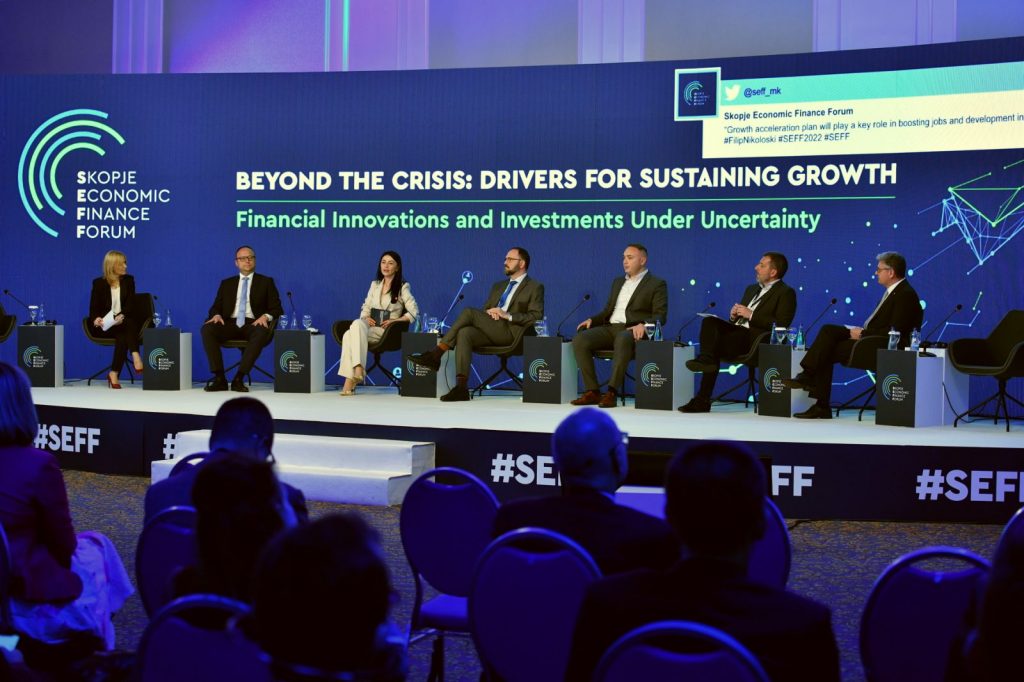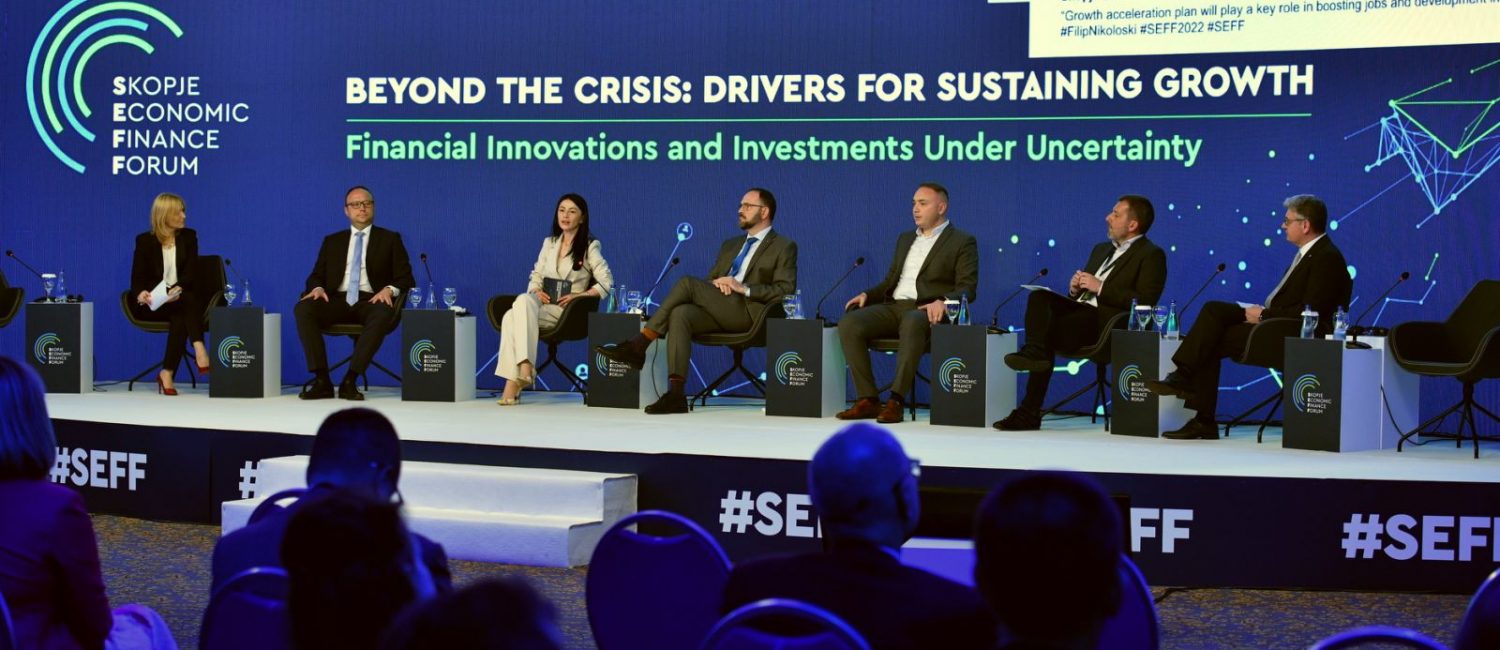31st May 2022, Skopje – There is ongoing ambitious investment agenda as regards the infrastructure projects in our country. Investments in Road and Rail Corridors 8 and 10, highways Skopje- Blace and Kichevo-Bukojchani, railways, gasification and connectivity with the region, as well as other structural reforms such as digitalization and human capital investments, will be drivers of growth upon the crisis, as well as a basis for development of the economy. This was pointed out within the four pillar under SEFF, being dedicated to the challenges beyond the crisis, i.e. the way of ensuring sustainable economic growth.

Deputy Prime Minister, Artan Grubi, during his opening speech at the fourth Panel, underlined that the economic growth sustainability is conditioned by a number of factors. He pointed out that our country aspires to become part of the EU. He also stressed that undertaken activities, pertaining to the ambitious infrastructure agenda, i.e. that Corridor 8 and Corridor 10 between Prilep and Bitola and Skopje-Blace highway are being built, including the Kicevo-Bukojcani highway, totaling EUR 1.7 billion, whereby the economy, the companies and the citizens, will feel the benefits therefrom. In addition, he pointed out that the railways along the eastern part of Corridor 8, as well as the western part of this Corridor with Albania, which is expected to be launched next year, will significantly contribute to the economic growth. This will be coupled by the projects pertaining to the Green Deal, sustainable energy, waste management, etc.
The second keynote speaker, former British Prime Minister, Tony Blair pointed out that the development of an economy like ours, requires four important changes – digitalization aimed at growth acceleration, green and renewable energy, investments in the field of education and infrastructure, as well as regional cooperation.
President of the European Bank for Reconstruction Odile Renaud-Basso pointed out that EBRD supports the Pan-European Corridors, the railway transportation, which is at least 50%-60% less polluting than the road transport. EBRD has invested more than a billion euros in the field of railway transportation in Western Balkan countries, adding that now is the right time to invest in infrastructure and bring the countries in the region closer to each other, thus appropriately responding to the ongoing climate crisis.
Representatives of the international financial institutions, such as the IFC and the EIB, also expressed their support for the country and the region all to the end of ensuring sustainable economic growth.
Regional Manager, Central and Southeast Europe, International Finance Corporation, Ary Naїm underlined that we cannot rely on public investments alone and that the private sector should be engaged as well. As he pointed out, technical adjustments are needed, which will provide for better positioning of the country, as well as that it is time for having more numerous public-private partnerships in place given that distribution is much more important than production nowadays.
Alessandro Bragonzi, Head of Regional Representation of EIB for Western Balkans stressed the importance of making investments in the energy sector from the aspect of increased both generation of energy and energy savings. He underlined that, over the last 10 years, more than EUR 3.2 billion have been invested in the Western Balkans, including North Macedonia as well and that there can always be more investments therein. He highlighted that in addition to the road infrastructure development, more environmentally friendly transport should be considered, such as the railway one.
















